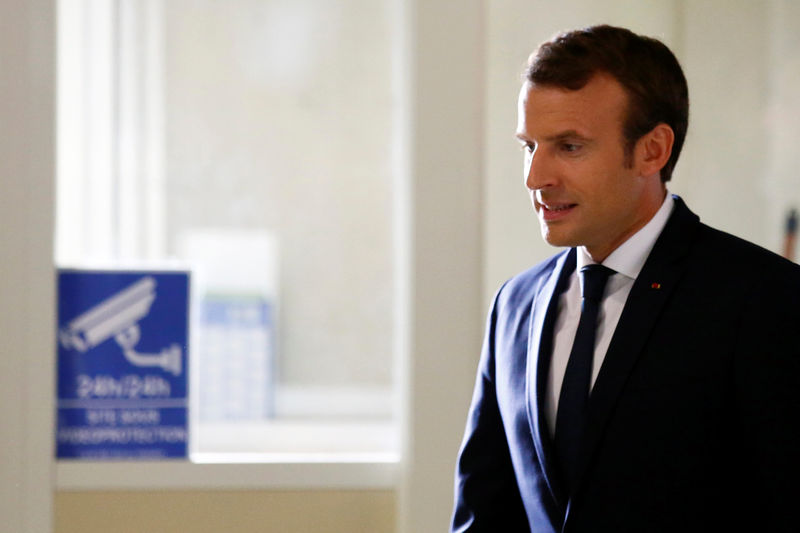PARIS (Reuters) - President Emmanuel Macron called for changes to France's food chain on Wednesday to ensure that farmers, who have been hit by squeezed margins and a retail price war, are paid fairly.
Macron said he supported a new type of contract, based on farmers' production costs, which would require stronger producer organisations and a change in legislation.
The changes are part of a wide field-to-fork review promised by Macron during his presidential campaign as he sought to appease farmers, an important constituency in French politics, who have also complained of excessive red tape.
Last year a third of farmers earned less than 350 euros (304.6 pounds) a month, the Agricultural Mutual Assistance Association (MSA) said, a third of the net minimum wage.
Macron endorsed a proposal from the workshops to create a reversed contract starting from farmers, to food processors and to retailers. This would ensure a better spread of added value along the chain.
"We should allow farmers not to rely on subsidies anymore and therefore ensure than they be paid a fair amount for their work," Macron told farmers and food industry players at the Rungis food market near Paris.
Prices are currently defined by buyers tempted to pressure prices, leaving many farmers unable to cover their costs.
Answering a proposal by a majority of French retailers to raise the minimum prices they can charge on products, a move which they say could benefit those lower down the supply chain, Macron said he would limit it to food products and only favour if each sector proposes organisation plans by year-end.
Macron's office said on Tuesday he had delayed until the end of the year his decision on retailers' proposal as he sought guarantees it will meet his promise to boost farm income and food quality while minimising retail inflation.
"Raising the threshold of resale at a loss without asking for any effort, no accompaniment, no transformation, is a form of blank cheque," he added.
Company and industry representatives, unions, non-governmental organisations and officials, gathered at the so-called Food Convention since the summer to discuss topics ranging from food quality to farm income and export strategy.
A second phase will start next week with debates focussing on healthy, safe and sustainable food and will last until year-end.
